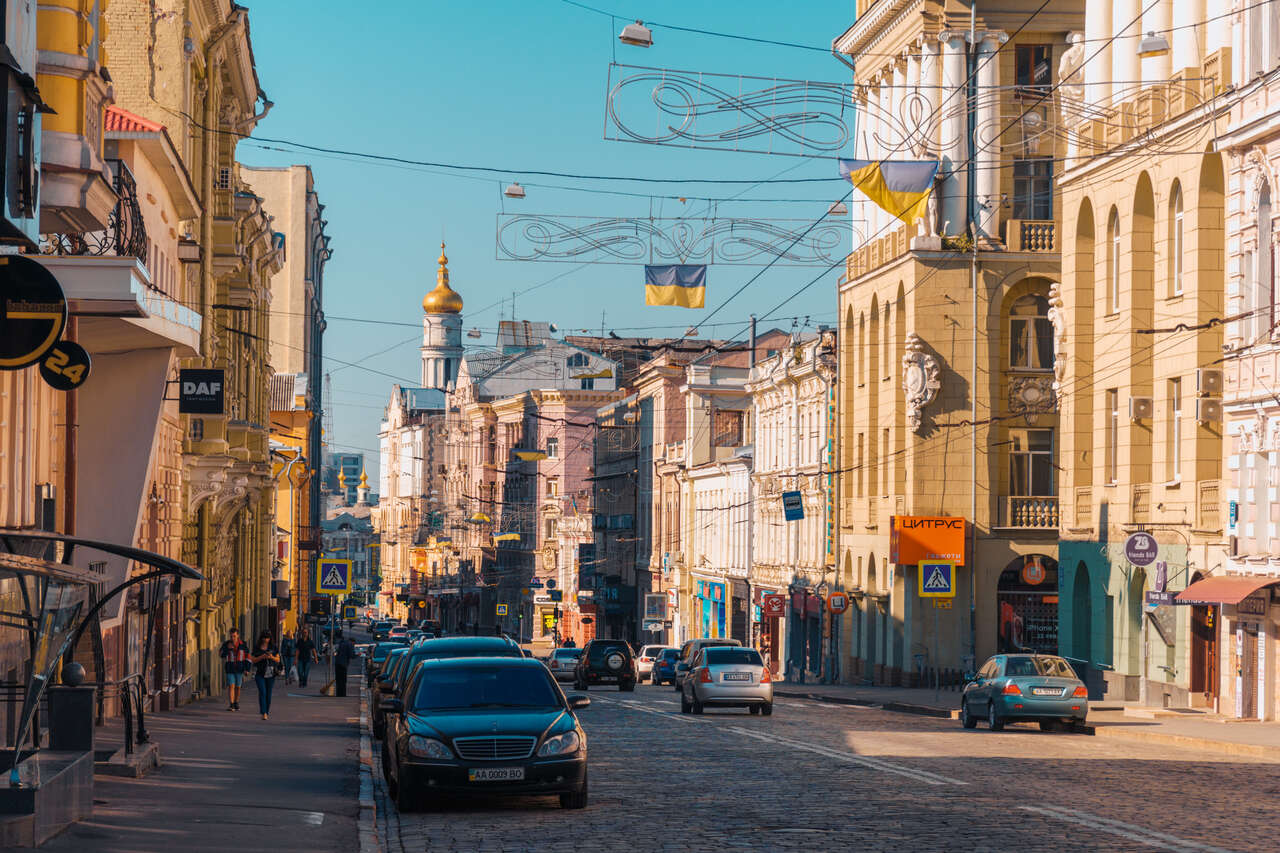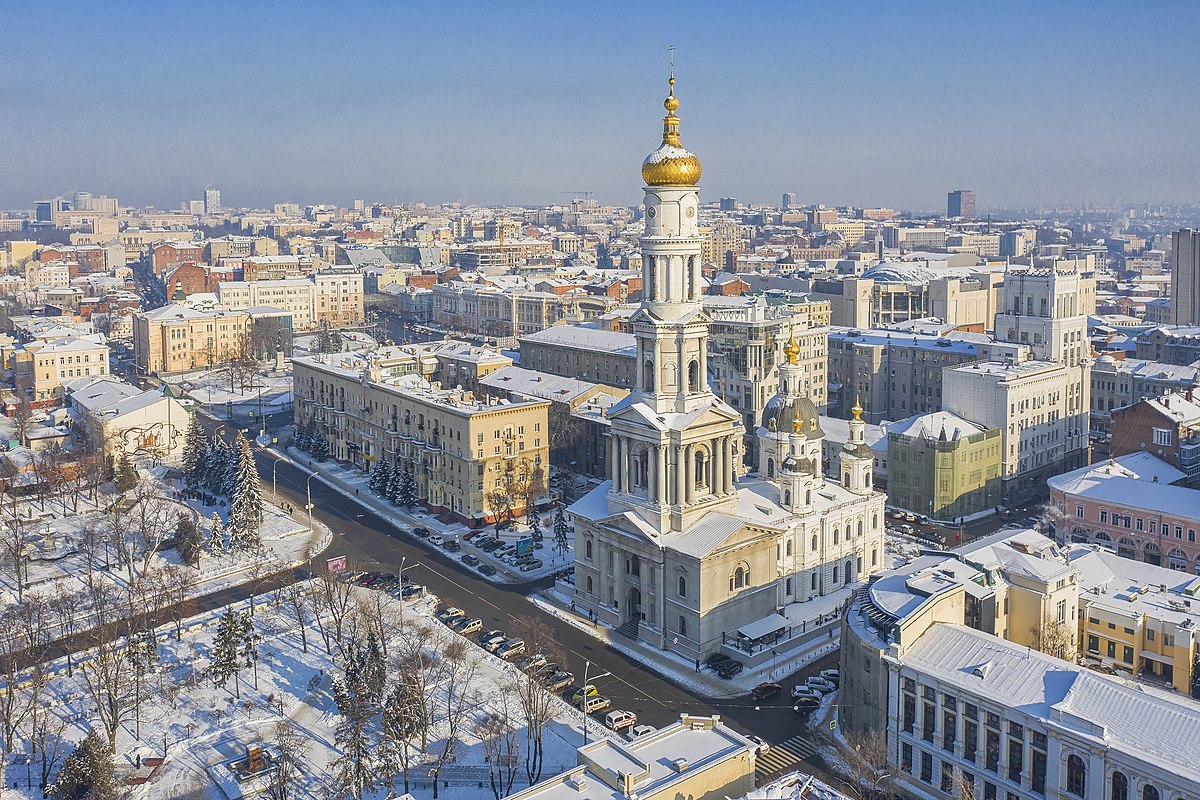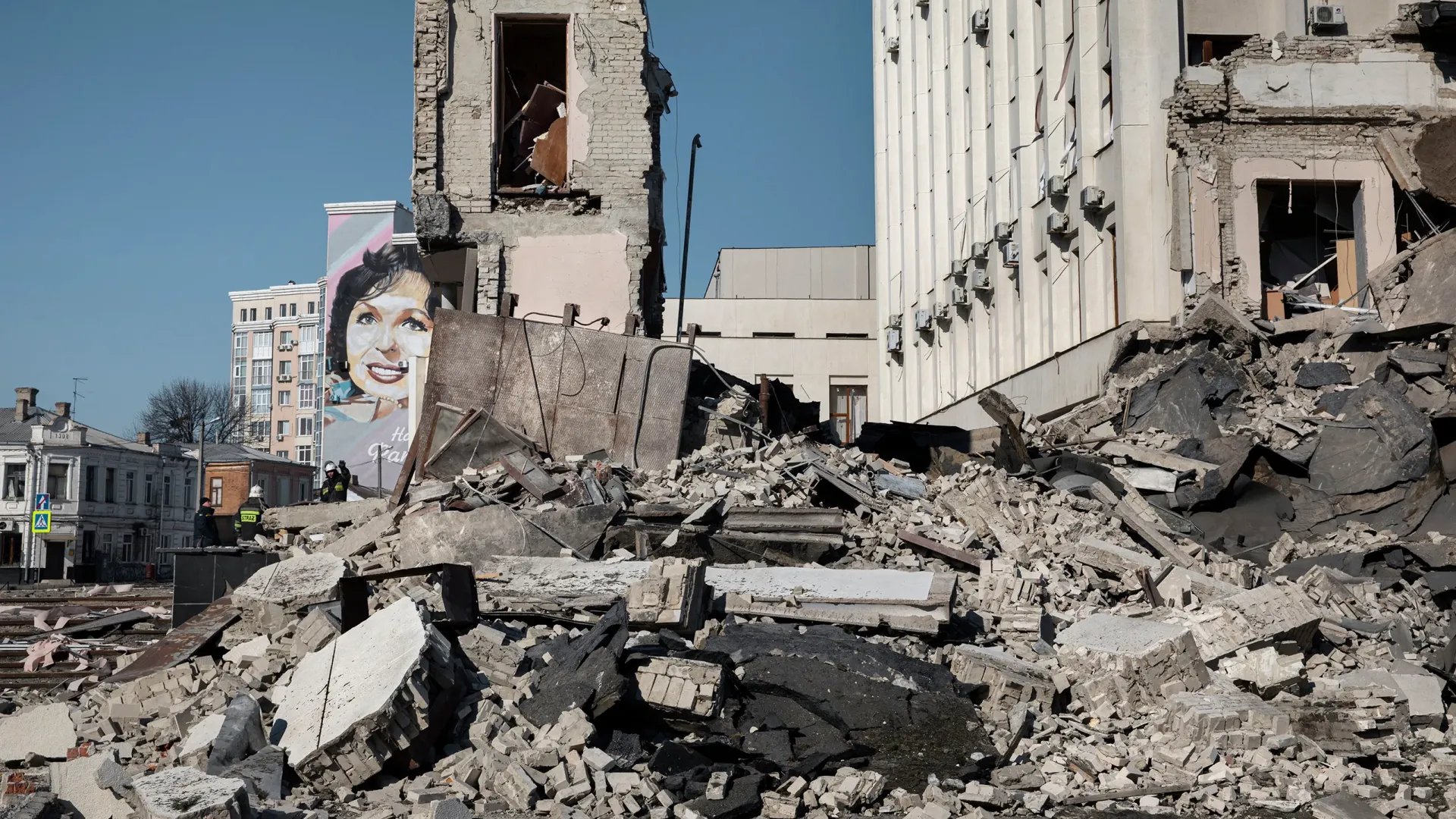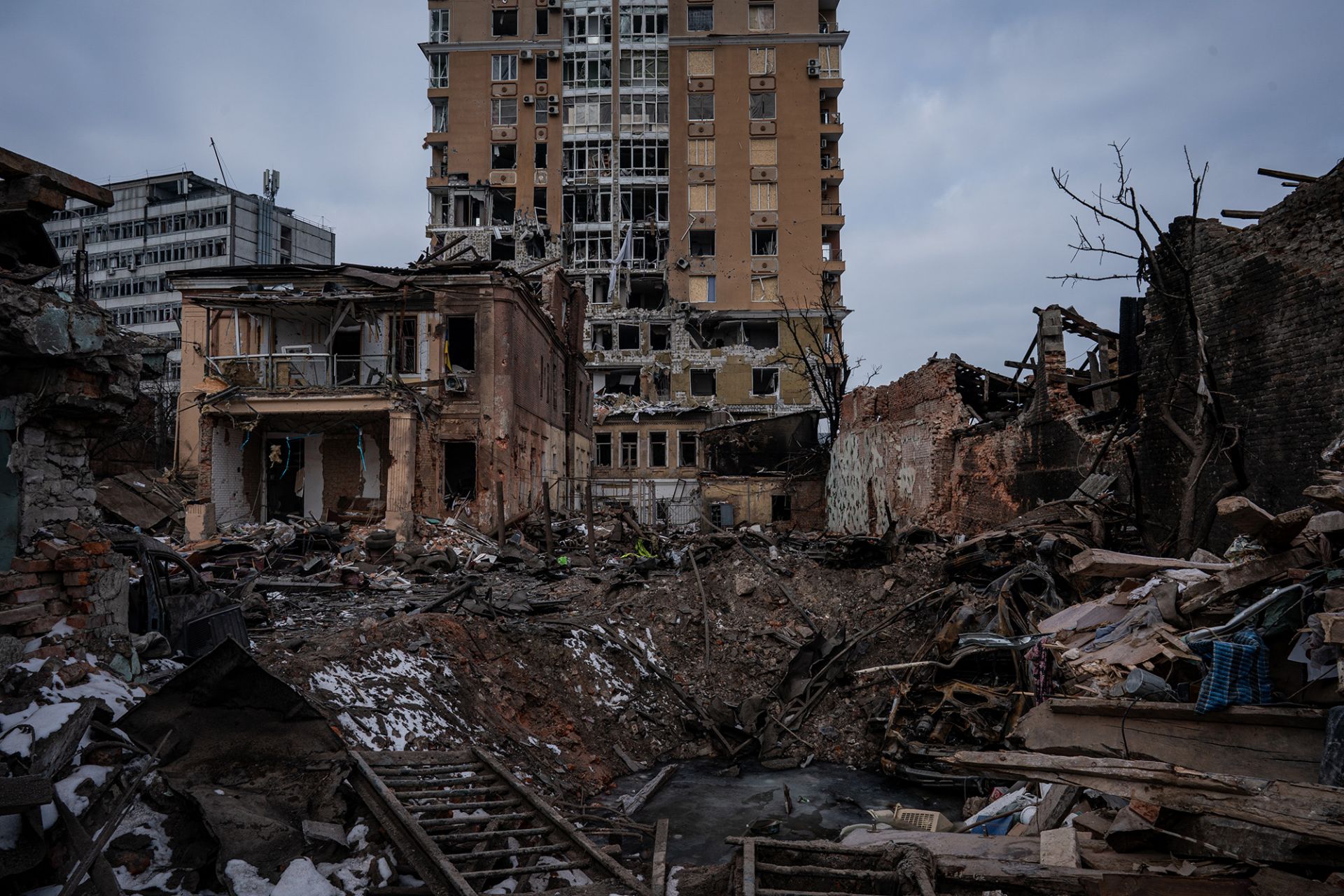The city of Kharkiv is Ukraine's second largest city after Kyiv, and it sits just 40 kilometers from the Russian border.
Like borderlands everywhere, multiple influences have shaped Kharkiv's identity. Kharkiv’s location means that the city is a confluence of multiple historical, linguistic, and cultural influences in a single geography, shaped and reshaped by Ukranian, Russian imperial, and Soviet legacies, as well as diasporic peoples from all over the world.




